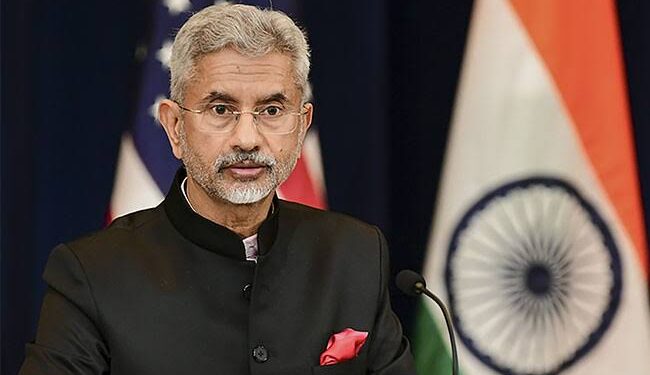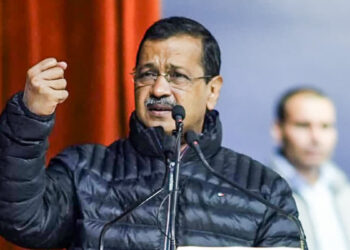India’s Operation Sindoor: Jaishankar Defends Decisive Anti-Terror Strikes in Pakistan
New Delhi, June 10, 2025 – India’s Foreign Minister, Dr. S. Jaishankar, has strongly endorsed Operation Sindoor, a targeted military operation launched on May 7, 2025, against terrorist bases in Pakistan and Pakistan-administered Kashmir. The operation, a response to the deadly April 22 Pahalgam terror attack in Jammu and Kashmir, underscores India’s firm stance against cross-border terrorism. Speaking at a press conference, Jaishankar asserted, “The trail of terror consistently leads to Pakistan, and India will act decisively to safeguard its people and sovereignty.”
Operation Sindoor: A Precision Strike
The Pahalgam attack, which killed several tourists, was linked to Pakistan-based militant groups Lashkar-e-Taiba and Jaish-e-Mohammed. In retaliation, India executed Operation Sindoor, deploying fighter jets and precision strikes to destroy nine terrorist camps in areas including Muzaffarabad, Kotli, Bhimber, Sialkot, and Bahawalpur. Indian military sources report over 80 militants were eliminated, with minimal civilian impact, a claim supported by satellite imagery and army-released visuals.
The operation aimed to cripple the infrastructure of these groups, which India accuses of orchestrating attacks on its soil. Described as a “surgical strike,” it reflects India’s growing capability to conduct high-precision counterterrorism operations.
Jaishankar’s Global Appeal
Addressing a global audience, Jaishankar highlighted Pakistan’s role as a sanctuary for terrorist networks, a concern echoed by regional analysts. “The history of terror attacks in South Asia repeatedly points to Pakistan,” he said, urging the international community to hold accountable nations that harbor terrorists. He framed Operation Sindoor as a necessary act of self-defense, consistent with international norms on counterterrorism.
India’s foreign minister also called for collective action to address terrorism’s root causes, emphasizing that unchecked safe havens threaten global security. His remarks resonate with nations facing similar threats, positioning India as a key player in the global fight against terrorism.
International Reactions and Regional Tensions
Pakistan denounced the strikes as a violation of its sovereignty, while India maintained they targeted non-state actors, not the Pakistani state. The operation has heightened tensions along the India-Pakistan border, with both nations on high alert. While some Western governments expressed concern over potential escalation, others, including counterterrorism experts, have acknowledged India’s right to respond to cross-border threats.
The strikes have sparked debate about stability in South Asia, a region critical to global geopolitics. The United States and other powers have called for restraint, while countries like Afghanistan, which have faced similar Pakistan-based militancy, have expressed tacit support for India’s actions.
A Legacy of Cross-Border Terrorism
Operation Sindoor is the latest in a series of Indian responses to Pakistan-linked terrorism, following the 2016 surgical strikes and 2019 Balakot airstrike. High-profile attacks, including the 2001 Indian Parliament attack and the 2008 Mumbai attacks, have long strained India-Pakistan relations. India accuses Pakistan of providing logistical and financial support to militant groups, a charge Islamabad denies.
Jaishankar’s defense of the operation signals India’s shift toward a proactive security posture, unwilling to tolerate further attacks. “India will act wherever necessary to protect its citizens,” he stated, hinting at readiness for future operations if provoked.
Implications for Global Security
Operation Sindoor highlights the challenges of addressing state-sponsored terrorism in a nuclear-armed region. For global readers, it underscores the complexities of counterterrorism in South Asia, where historical rivalries and porous borders enable militant activity. India’s actions may prompt renewed international focus on pressuring Pakistan to dismantle terror networks, a longstanding demand of the Financial Action Task Force (FATF) and other bodies.
As India and Pakistan navigate the fallout, the operation’s success in neutralizing threats without broader escalation could serve as a model for precision counterterrorism. However, it also risks further straining bilateral ties, with potential ripple effects on regional stability.
Looking Ahead
India has reiterated its openness to dialogue but insists Pakistan must first eliminate terrorist infrastructure. For the international community, Operation Sindoor is a reminder of the persistent threat of terrorism and the need for unified action. As Dr. Jaishankar emphasized, “Terrorism is a global challenge, and no nation can address it alone.”
For now, India’s resolute response to the Pahalgam attack has reaffirmed its commitment to national security, while raising critical questions about the future of peace in South Asia.





































